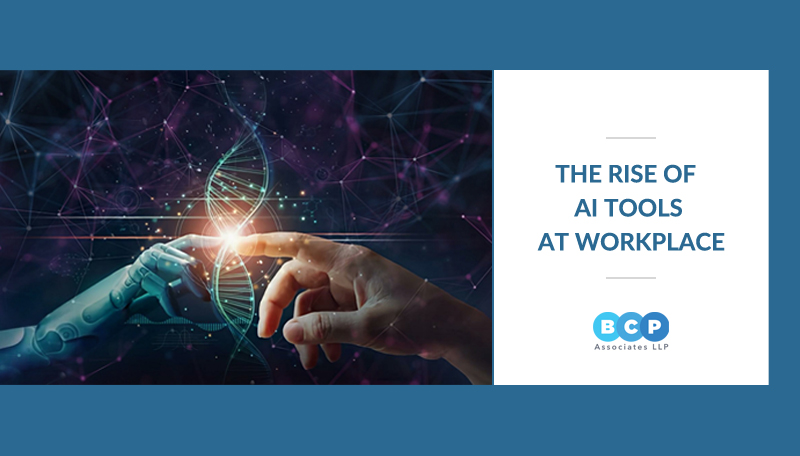
AI has revolutionised numerous industries, and the legal world is no exception. Law firms have recognised the potential of AI to streamline processes, enhance accuracy, and provide valuable insights. It encompasses a broad range of technologies, including machine learning, natural language processing, and data analytics. When integrated into law firm operations, AI has the capacity to augment the capabilities of legal professionals, enabling them to deliver more efficient and effective services.
Artificial Intelligence (AI) is a branch of computer science that focuses on creating intelligent machines that can perform tasks that normally require human intelligence, such as visual perception, speech recognition, decision-making, and natural language processing.
AI in Law – How can it help us?
Legal Research: By analysing vast databases, AI can identify precedents, relevant cases, and legal principles, assisting legal professionals in building stronger arguments and providing accurate advice. However, the limitations of AI include limited content awareness and the potential for bias, emphasising the need for human review and critical analysis.
Drafting and Documentation: By leveraging natural language processing, these tools can analyse contracts, policies, and other legal documents swiftly and quite accurately. This streamlines document creation, ensuring compliance, identifying risks, and suggesting relevant clauses. However, it’s important to note that AI lacks legal expertise and human review remains necessary.
Data Analysis and Predictive Analytics: AI’s data analysis capabilities provide valuable insights by analysing historical case data and court rulings which can predict potential outcomes. This empowers employers to make data-driven decisions regarding litigation strategies, settlement negotiations, and compliance measures. However, human expertise is crucial to interpret and apply the predictions effectively.
Pitfalls
In the recent case, Roberto Mata v. Avianca Inc., lawyer Steven Schwartz unknowingly relied on inaccurate information generated by an AI chatbot called ChatGPT. When representing Mata, Schwartz submitted a federal court filing that referenced non-existent cases, which were entirely fabricated by the AI chatbot. Schwartz even sought reassurance from ChatGPT about the validity of these cases, and the chatbot confidently affirmed their accuracy. This case serves as a compelling illustration of the need to verify facts independently when utilizing AI, as it can only provide information based on its training data.
ChatGPT generates realistic responses by employing a statistical model that relies on billions of examples of text collected from various sources on the internet. However, it is crucial to understand that ChatGPT’s output is solely based on the information it has been trained on and does not possess inherent knowledge or fact-checking abilities.
The Way Ahead
While concerns often revolve around the emergence of AI technologies acquiring self-awareness and autonomous decision-making capabilities, the real danger associated with AI lies elsewhere. We must refrain from unquestioningly accepting any information presented by machines, regardless of its accuracy. As an AI language model, it is crucial to acknowledge the potential inaccuracies in its responses.
AI offers benefits such as streamlined drafting, efficient legal research, and data-driven insights; however, it should not be seen as a replacement for human legal professionals. Hence, striking a balance between AI-powered tools and human expertise is essential. It falls upon us, as responsible users, to exercise due diligence in fact-checking and prioritise the pursuit of truth and accuracy.
At BCPA, we have effectively harnessed AI and ML in our audit processes, to increase efficiency and eliminate human error. By leveraging AI technologies, we have been able to streamline our audits and help create a focused risk mitigation approach for our valued clients. Our commitment to integrating AI reflects our dedication to providing relevant and optimised service for our clients.